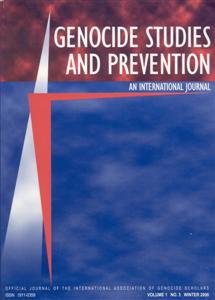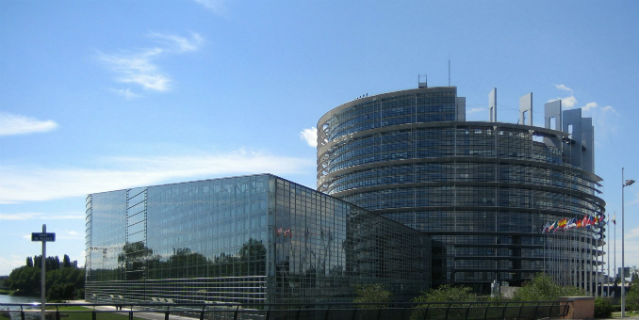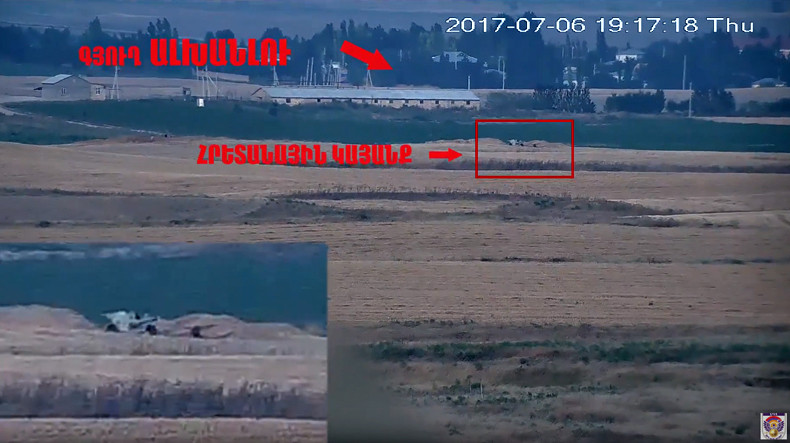

“The African Standby Force, Genocide and International Relations Theory” by Stephen Burgess, Professor at the US Air Wave College, examines the proposal to create an African Standby Force (ASF) to intervene when genocide threatens on the continent. In launching the ASF, African leaders over-promised to stop genocide, given their lack of political will, the weak capacity of their states, and the weak military capability of the Force’s subregional brigades. Burgess notes that the leaders of various countries have failed to come close to meeting the 2010 deadline and questions an “African solution for African Problems” – reinforcing the international importance of genocide and the international responsibility of its prevention.
Regine King, PhD candidate at the Factor-Inwentash Faculty of Social Work at the University of Toronto, and a graduate of the Genocide and Human Rights University Program, writes about “Healing Psychosocial Trauma in the Midst of Truth Commissions: The Case of Gacaca in Post-Genocide Rwanda.” Writing as a Rwandan community-based mental health researcher and practitioner concerned with the mental well-being of individuals and communities that survive mass violence and genocide, she critiques the exclusive use of community based truth commissions, regardless of their emphatic endorsement by post-conflict governments and multilateral organizations since the end of the Cold War. She concludes by suggesting that other models should be adopted to supplement gacaca.
In “From Bloodless Revolution to Bloody Counterrevolution: The Adana Massacres of 1909,” Dr. Bedros Der Matossian describes that the historiography of the Adana Massacres of 1909 are represented by two diverging views. While some Turkish scholars deny the involvement of local government officials in the massacres by putting all of the blame on the Armenians who revolted as part of a conspiracy to establish a kingdom in Cilicia, some Armenian scholars, whose work is overshadowed by the Armenian genocide, accuse the Committee of Union and Progress (CUP) of acting behind the scene to destroy the Armenian economic development in the area. By breaking free from the existing historiography, the present article contends that the Adana Massacres should be viewed as part of the revolutionary process which led to the erosion of social and political stability in the region, the creation of weak public institutions, and intensification of existing economic anxieties, all of which led to the enactment of violence against the vulnerable Armenian population of Adana.
The fourth contribution to this volume, “Did Newsnight Miss the Story? A Survey of How the BBC’s ‘Flagship Political Current Affairs Program’ Reported Genocide and War in Rwanda between April and July 1994”, examines the role of the news media in exposing or ignoring an ongoing genocide. It is authored by Georgina Holmes, a scholar of international relations theory and media, currently writing a book on the gendered politics of mediatised conflict in Rwanda. She writes that at the time of the genocide in Rwanda in 1994, the BBC’s late-night political discussion program, Newsnight, was one of the few media political spheres within which representatives of the British government, opposition parties, the United Nations, and international non-governmental organizations could comment on British foreign policy. Since 1994 the British media have been charged with failing to report genocide; yet a focus on print media has created a void in understanding how BBC’s Newsnight covered events. The present article analyzes how the BBC framed the genocide in a specific way until 31 July 1994. Holmes concludes that Newsnight missed the story and “failed to hold British politicians to account.”
The final selection in this issue is authored by Roger W. Smith, Professor Emeritus of Government at the College of William and Mary and Chairman of the International Institute for Genocide and Human Rights Studies (A Division of the Zoryan Institute). In his article, “George Steiner and the War Against the Jews: A Study in Misrepresentation,” Smith critiques the work of Steiner, finding it to be misleading in its interpretations, explanations, and implications. He contests Steiner’s claims that the Jews brought their near destruction upon themselves, that they had invented the practice of genocide, had created such moral demands upon ordinary human beings that the tension became unbearable and resulted in a revolt against the tyranny of conscience and perfection. In his own writing, Smith works to correct these assertions and directs the reader to the shortcomings in Steiner’s work as it relates to the Holocaust.
New Issue of Genocide Studies and Prevention Presents Original Research on Rwanda, Adana, the Holocaust and Prevention
- No comments
- 4 minute read
Open Letter on the Proposal to Rename the Armenia-Turkey Border Crossing After Talat Pasha
We express our deep concern and disappointment regarding the recent proposal introduced…
- MassisPost
- July 3, 2025
- No comments
- 2 minute read
Pashinyan’s Visit to Turkey and Beyond
By KRIKOR KHODANIAN At the invitation of Turkish President Recep Tayyip Erdoğan,…
- MassisPost
- June 29, 2025
- No comments
- 3 minute read
“I Still Can’t Believe What Happened on June 20”
By LUSYEN KOPA Exactly three months ago, I wrote an article titled…
- MassisPost
- June 26, 2025
- No comments
- 4 minute read
Anniversary of the Immortality of the Twenty Hnchakian Heroes
By KRIKOR KHODANIAN 110 years ago these days, the prominent figures of…
- MassisPost
- June 15, 2025
- No comments
- 3 minute read









